During November 30, 2023 the conference “Empower Young Minds: Shaping Young Activists and Media Literacy” was held at the NEST Coworking space in Podgorica, Montenegro.
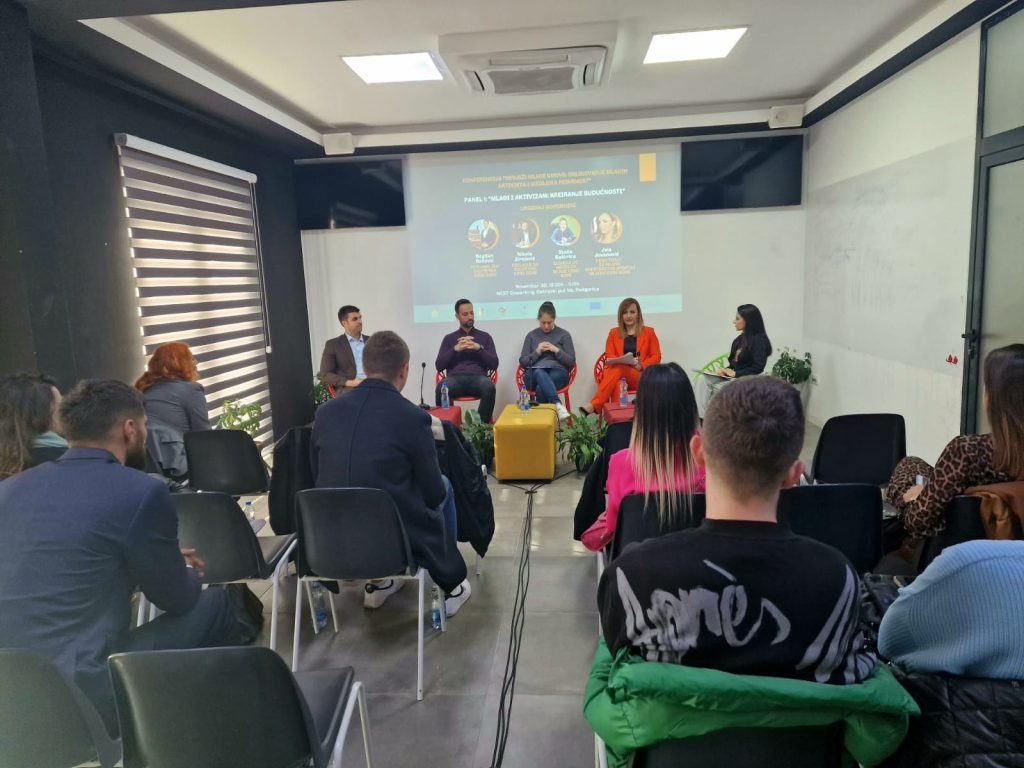
The conference was opened with welcoming words by the executive director of NVO GLAS, Milica Dedić, wishing the attendees an enjoyable day, encouraging them to create new connections, and, above all, inspiring them to collectively build the future.
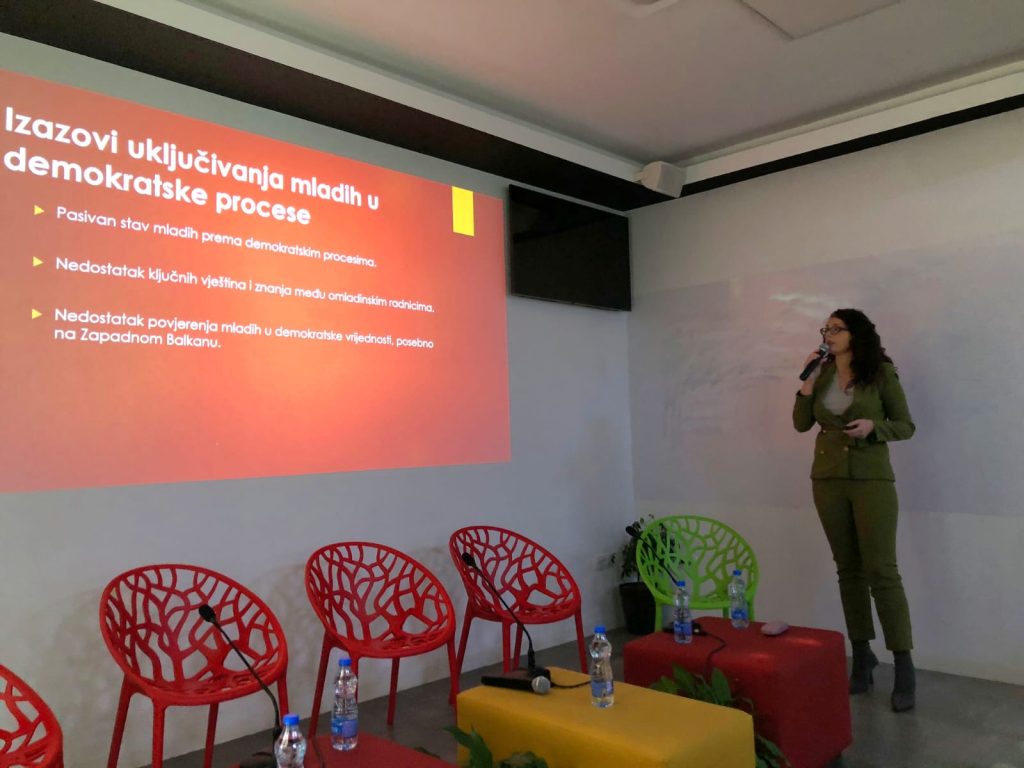
After the welcoming words, Milica presented the challenges that formed the basis of the development of the CRITIDe project, its thematic areas, project objectives, implemented activities by work packages, and introduced the project platform https://critide-youth-power.org as well as the online course https://lab.learning-library.net/courses/activism-and-participation-in-democratic-processes-through-youth-work/ .
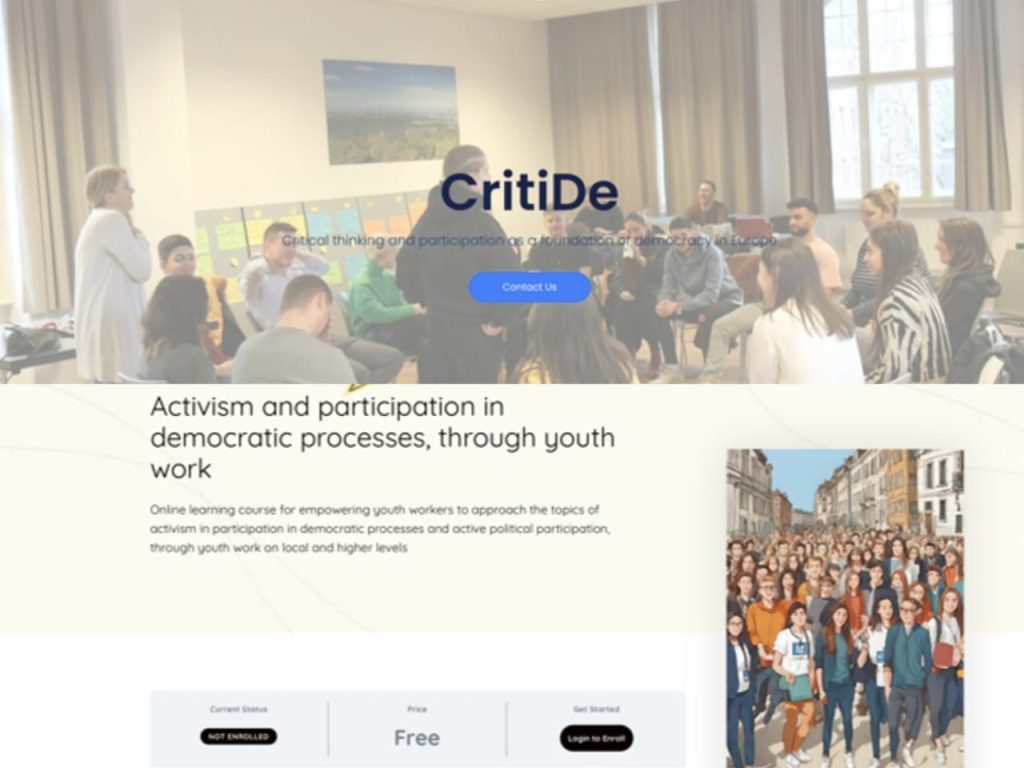
Panel 1: “Youth and Activism: Creating the Future”
Following the successful presentation of CRITIDe project results, the moderator, Jelena Vukčević, introduced the theme of the first panel: “Youth and Activism: Creating the Future.” She presented distinguished speakers: Bogdan Božović, MP of the SNP in the Parliament of Montenegro; Nikola Zirojević, MP of the SD in the Parliament of Montenegro; Staša Baštrica, member of the Board of Directors of the Youth Network of Montenegro; and Jela Jovanović, representative of the Directorate for Youth in the Ministry of Sports and Youth of Montenegro.
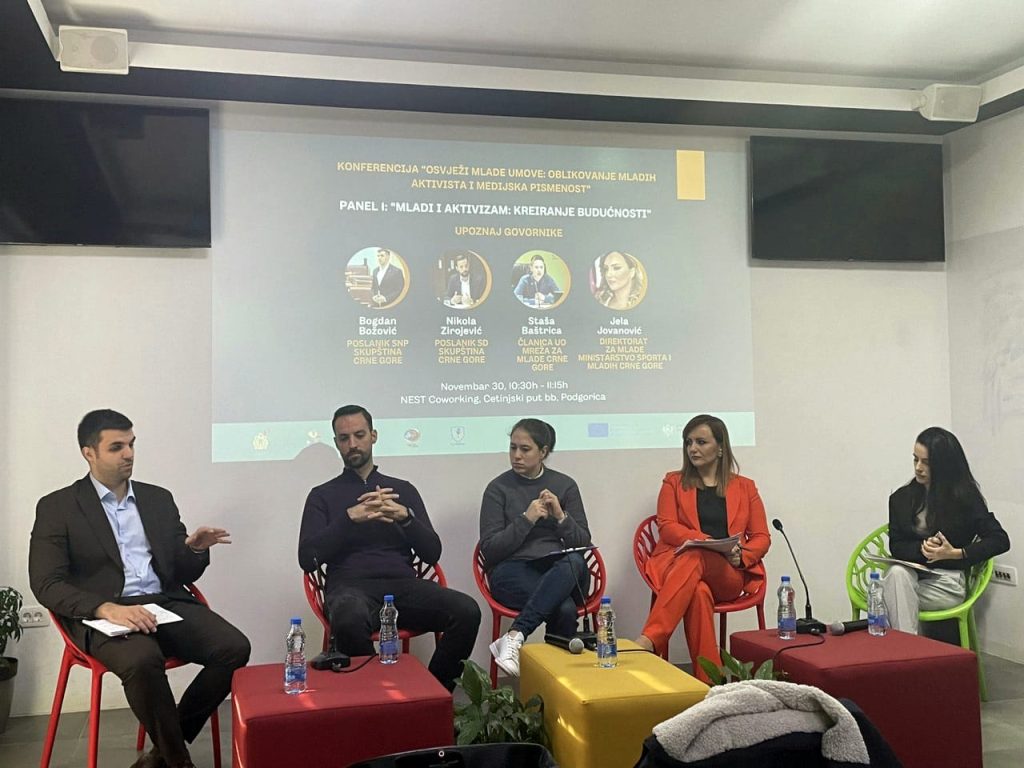
Bogdan Božović, during his presentation, offered constructive suggestions for engaging youth in dialogue with the government and strengthening their voice in key decisions. His idea of establishing a youth office to interact with ministries, propose initiatives to the Parliament of Montenegro, and promote youth presence in public debates, using e-petitions and events such as the “Youth Parliament – Simulation of Parliament’s work,” underscores the need for active youth participation in the political process.
Bogdan emphasized the importance of transparency and accountability in political work, especially concerning youth seeking change. Mentioning eGovernment as a transparent portal providing access to various data and serving as a starting point for communication with citizens, he sees it as a crucial element in creating new value. Bogdan highlighted that the common goal should be to strengthen the economy and reduce the state budget’s dependence solely on tourism.
In addition, Bogdan shares the view that party membership should play a crucial role in assessing the party’s leadership. He also believes that the party president’s mandate should be limited to a maximum of 4+4 years, contributing to the democratic process within political structures.Nikola Zirojević discussed the demotivation of most young people towards politics, emphasizing the need for collaborative efforts and the creation of a Youth Club within the parliament.
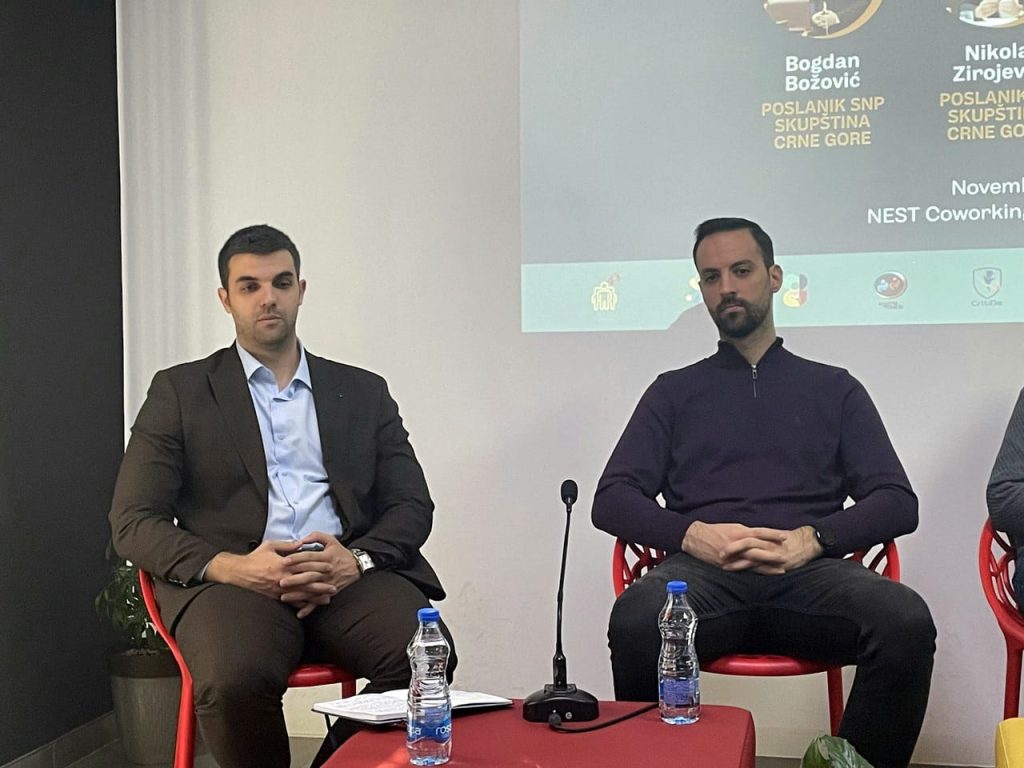
Nikola Zirojević, an MP from the SD, expressed deep concern about the general demotivation of youth towards politics, where young people often perceive politics as something “dirty.” Aware of this challenge, Nikola emphasized the necessity for greater involvement of young people in public dialogue, urging them to use existing mechanisms. His announced initiative to establish a Youth Club within the parliament indicates a desire to preserve the essence of young society and collective action to achieve common goals.
Showing support for young leaders in his party, Nikola highlighted that his party has a young person in the presidency, with the oldest member being 44 years old. This young politician supports the gathering of young people in various environments and expressed surprise at the knowledge of high school students who participated in the Youth Parliament program – Simulation of Parliament’s work, where he himself was a mentor. He emphasized the need to raise awareness about politics among young people. Nikola also pointed out the communication problem with the government, stating that, although there is a legal possibility to request information from ministries, there is often no response to such requests, which represents a serious demotivating factor for the youth. With this stance, he highlighted the necessity of transparency and openness in the political process to ensure active youth participation.
Staša Baštrica, a member of the Board of Directors of the Youth Network, highlighted the vision of the Network – creating a society where young people have a decisive influence on decisions. During her presentation, Staša revealed that the Network currently includes 44 organizations dedicated to working with and for young people, emphasizing the need for continuous improvement. She expressed optimism about future cooperation with the Ministry of Sports and Youth, adding that there is room for successful coordination.
Staša also shared with the audience several key projects of the Network, particularly highlighting the Youth Participatory Academy, which brought together prominent speakers and, for the first time, introduced the Romani language in Parliament. These projects not only contribute to promoting young people in public discussions but also lay the groundwork for inclusiveness and diversity in political engagement.
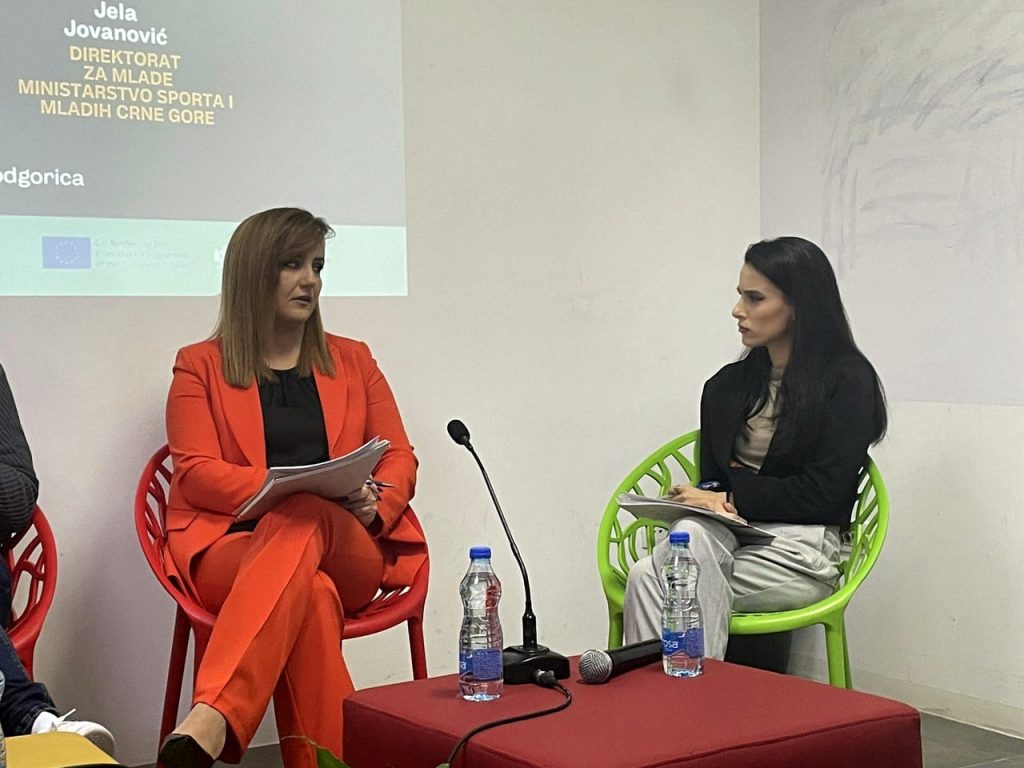
Jela Jovanović, a representative of the Directorate for Youth in the Ministry of Sports and Youth, brought exciting news about the adoption of the Youth Strategy 2023-2027 this year. She particularly emphasized the significant role of young members of the Working Group in creating this important document, laying a strong foundation for active youth participation in strategic initiatives. She highlighted the ministry’s cooperation with non-governmental organizations, recognizing the challenges caused by the lack of a strategic document but announced strong support for projects in the field of media literacy and activism in the future. Jela pointed out plans to establish a Youth Council, where members will represent both state institutions and non-governmental organizations, playing a key advisory role. Referring to sports initiatives, Jela explained that the Ministry of Sports and Youth co-finances recreational sports activities, supports infrastructure projects, and awards scholarships to promising young athletes. With plans to expand the youth service network by the end of 2027, along with the distribution of over 60,000 youth cards in Montenegro, Jela concluded the first panel with a message about the need for joint action across all sectors of society to achieve improvements in access and support for young people.
Panel 2: “Media Literacy: Challenges and Opportunities in the Digital Society”
The conference continued with the second panel, titled “Media Literacy: Challenges and Opportunities in the Digital Society.” In the role of moderator, Danilo Vukčević warmly welcomed experts from the media, academic community, and politics. The panelists include Prof. Dr. Nataša Ružić, a professor of media literacy at the Faculty of Political Sciences; Nemanja Lacman, a journalist and editor of the Adria portal; Snežana Burzan Vuksanović, a media and public relations specialist; and Marica Bulatović, a politician with significant experience in the media.
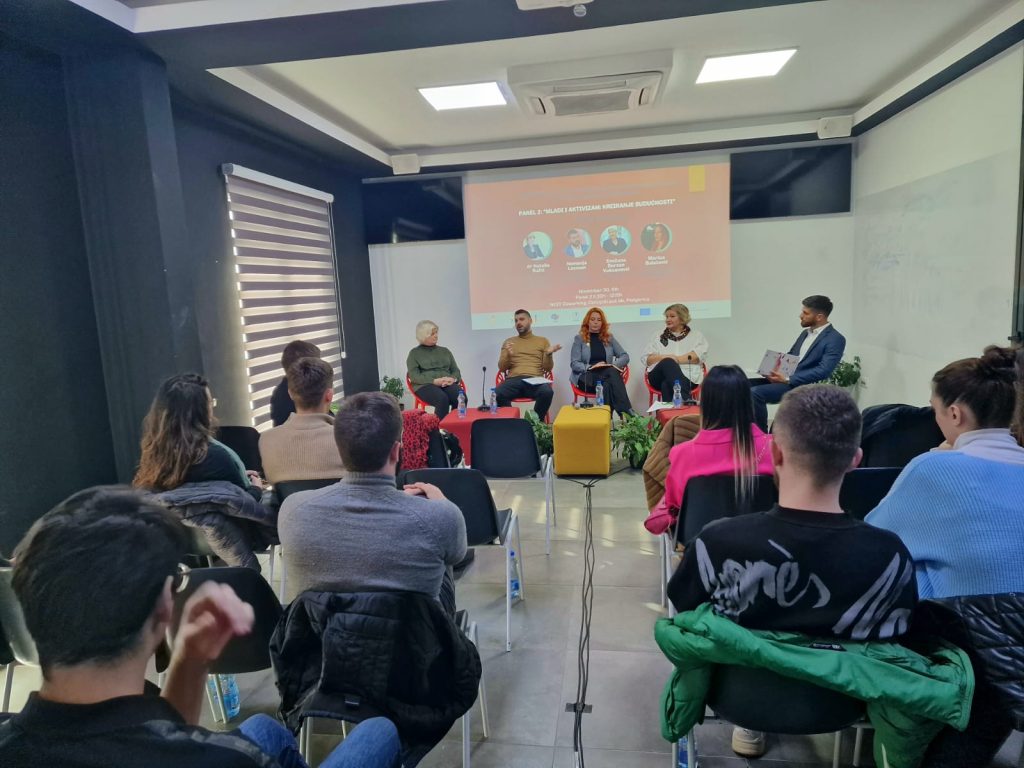
Prof. Dr Nataša Ružić emphasized that media literacy is often incorrectly defined, highlighting insufficient interest among young people in personal improvement in today’s digital age. In her opinion, the process of gaining knowledge should be a mutual effort – if the other party is unwilling to learn, all efforts are in vain. Professor Ružić believes that artificial intelligence will help journalists create media content but emphasizes that it cannot replace journalists in reporting news.
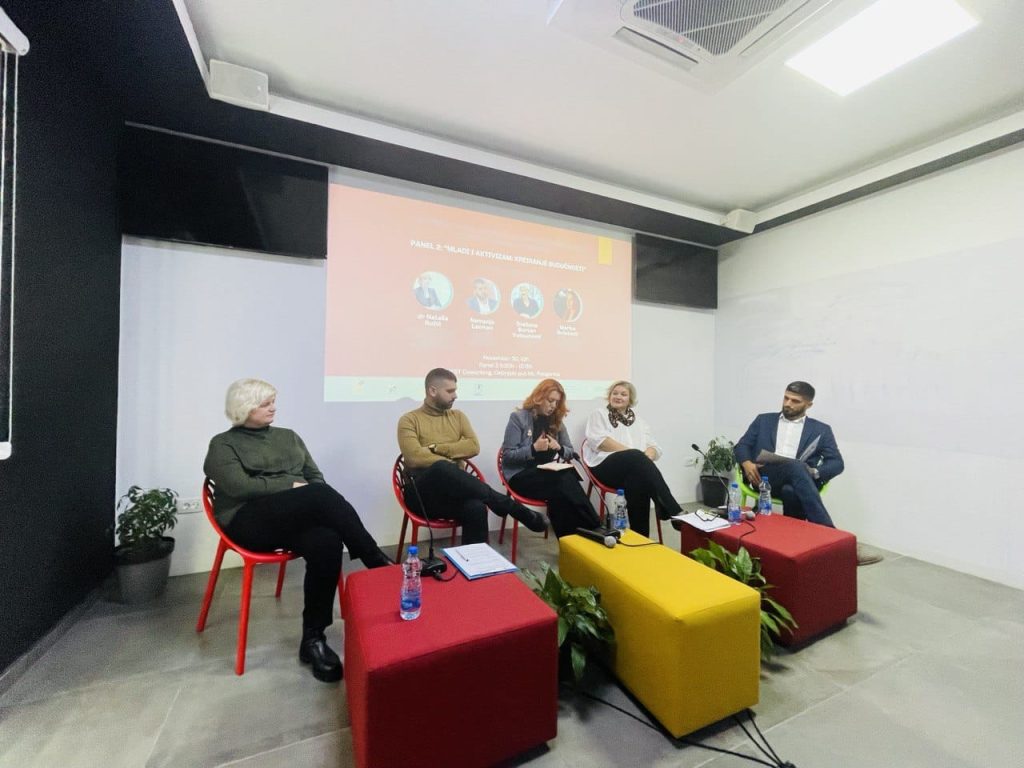
Nemanja Lacman, editor of the Adria portal, pointed out that fake news is prevalent in today’s society but stressed the importance of having fact-checkers in the online space. Media literacy gives us the ability to develop a critical approach to information received from the media. He emphasized that it is crucial for parents to explain situations to children since they won’t be able to understand the complexity of media literacy on their own. Lacman highlighted that discussions about media literacy have only recently started in our country and that a larger number of fake news is present on social media, which is then further transmitted by the media.
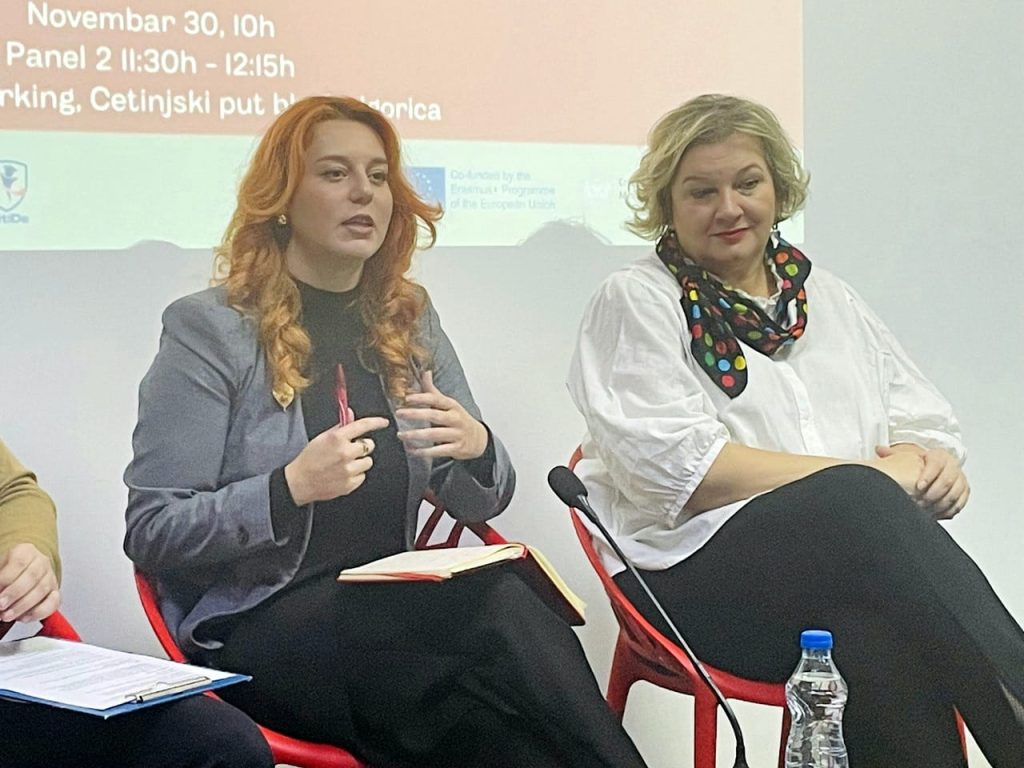
Marica Bulatović, a politician with rich experience in the media, emphasized that in today’s age, everyone has the right to be public and access channels that lead to a wider audience. Laws in Montenegro firmly protect freedom of expression and young people from the negative influence of the media. She appealed to the state to find ways to filter information and improve human resources, especially in the segment of media literacy.
Snežana Burzan Vuksanović, a media and public relations specialist, expressed her belief in humanity, emphasizing the importance of knowledge, emotions, and creativity. In an interactive presentation, she presented numerous examples of media that violate the most common standards of journalism.
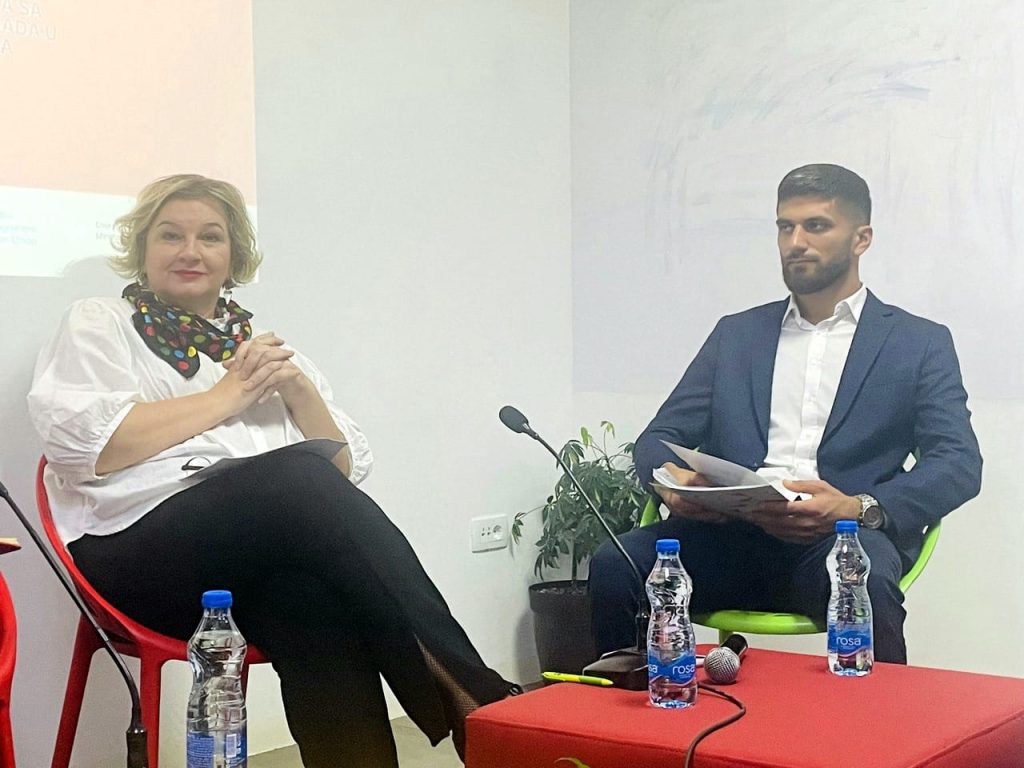
The panelists shared inspirational life stories, encouraging attendees to collectively develop ideas to address key issues. After intriguing discussions, attendees had the opportunity to exchange contacts and ideas during the networking segment of the event, accompanied by refreshing drinks and canapés, marking a successful conclusion to the conference.